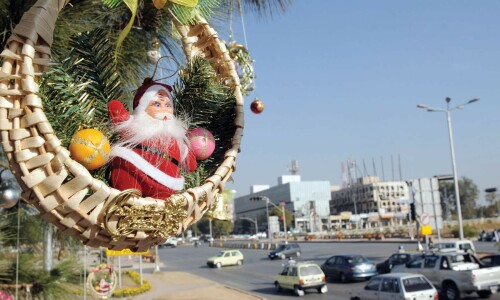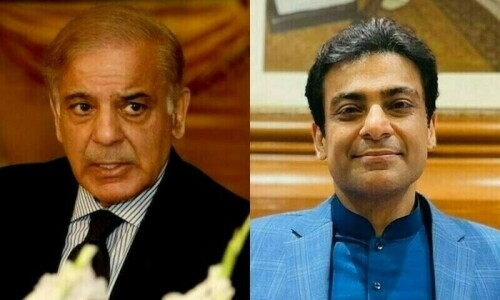SIX years after Pakistan’s last attempt to try and embrace estranged Baloch leaders failed, or was foiled, Prime Minister Imran Khan has announced a fresh move aimed at Baloch reconciliation but critical questions will need to be answered before such an initiative can get off the ground.
A quick reminder: the current round of insurgency is the fourth since the Khan of Kalat acceded to Pakistan some seven months after the country’s birth, triggering unrest in 1948. The decision did not sit well with some Baloch leaders.
Unlike the troubles of the 1950s and then the 1970s, the current round has lasted a long time since the killing of Baloch leader Nawab Akbar Khan Bugti, as the military stormed his hideout in 2006. The tribal elder had taken to the mountains to protest against the rape of a woman doctor in Sui.
The alleged rapist was an officer in the security forces and the military ruler Gen Pervez Musharraf came out publicly to defend him, declaring his innocence, even before an official inquiry could be conducted let alone its completion and the submission of a report.
So much blood has been shed, with very few families in the Baloch heartland unaffected by tragedy.
The nawab was outraged at what he saw as a travesty as he considered the doctor under his protection, and protested vehemently. What followed was one tragedy after another. So much blood has been shed, with very few families in the Baloch heartland unaffected by tragedy.
Non-Baloch have also had their share of suffering as some of the armed groups have not even spared impoverished Seraiki-speaking labourers working on road-building projects. Professors, doctors and educated white-collar professionals have also been targeted, besides security personnel.
The state response has been merciless. Scores of Baloch youth have gone missing, disappeared without trace, and countless bodies found dumped bearing marks of brutal torture, as if this too was a not-so subtle message to anyone harbouring pro-Baloch separatist sentiments.
Against this backdrop, the prime minister’s move is appreciable but he would need to keep the backdrop of the various failed negotiations in mind. For example, Gen Musharraf jettisoned the process even as PML-Q leaders Chaudhry Shujaat Husain and Mushahid Husain were expressing optimism about a peaceful resolution after detailed talks in Dera Bugti with the nawab.
Gen Musharraf chose armed confrontation instead, as he and his colleagues believed they could wipe out the challenge by the use of force. Tragically, this turned Akbar Bugti, one of the most pro-federation political-tribal leaders in the province, into a symbol of separatism after his killing.
His named heir, grandson Brahamdagh Bugti, who was with him at the time of his death, managed to escape. He now heads the banned Baloch Republican Party (BRP) which is said to have ties with the proscribed Baloch Republican Army, one of the three main armed groups currently arrayed against Pakistan security forces.
He reportedly first moved to Afghanistan but after the Pakistani ISI chief Gen Shuja Pasha complained to the then Afghan president Hamid Karzai that Brahamdagh Bugti had made a base in Kabul, the BRP leader moved to Switzerland, it is believed in 2010.
He currently lives there despite having had his asylum application turned down in 2016 on the grounds, he said, that two countries complained his party supported guerrillas waging war against Pakistan. He was given the right to appeal.
Read: Reconciliation in Balochistan?
Around the same time, he admitted talking to India, seeking asylum during talks at the Indian consulate in Geneva, but it is not clear whether his request was granted as he continues to live in Switzerland with his family where last month he had brain surgery.
His close relative and comrade Mehran Marri, the brother of the slain Baloch Liberation Army chief Balach Marri, lives in Europe too and is an active advocate of the Baloch cause. Switzerland barred his entry citing his involvement in acts of terrorism in 2016-17. He is based in the UK.
While Brahamdagh Bugti has expressed his desire to negotiate with the Pakistan government in 2015 as well as recently as August 2020 in televised interviews, the stance of some of the other Baloch separatist leaders isn’t so clear and this includes Mehran Marri and Javed Mengal. There are some suggestions of contacts with self-exiled Khan of Kalat Mir Sulaiman Dawood in London.
All of these Baloch leaders are scions of influential tribal chiefs’ families. The only middle-class separatist leader is the Baloch Liberation Front’s Dr Allah Nazar, who is said to be in Afghanistan after he was reported injured in an armed encounter with security forces in Balochistan. Initial reports suggested he had been killed.
Peace moves initiated by the PPP during its five years in office from 2008 and then the PML-N and its National Party allies failed to make any headway in 2015, even as expectations were raised when Balochistan chief minister Dr Abdul Malik Baloch and federal minister retired Lt Gen Qadir Baloch met Brahamdagh Bugti, fuelling optimism, which was to soon evaporate.
Today, a movement is possible, since the government and the security establishment are said to be on the same page. However, progress is contingent on the government spelling out who it sees as India-backed leader(s) and group(s) as it has said no talks will be held with such entities.
Brahamdagh Bugti has denied receiving help from India though he has also said he won’t be averse to accepting assistance from anyone for his cause. His initial response to the appointment of his cousin Shahzain Bugti to take forward the reconciliation process was to joke about it.
For lasting peace on its own soil, and to blunt any enemy’s machinations, wouldn’t it be prudent for Pakistan to draw in all estranged Baloch leaders into a dialogue and leave none outside of the process for its enemies to exploit?
This requires wisdom and vision. Let’s see if enough can be found to solve this conundrum.
The writer is a former editor of Dawn.
Published in Dawn, July 12th, 2021













































